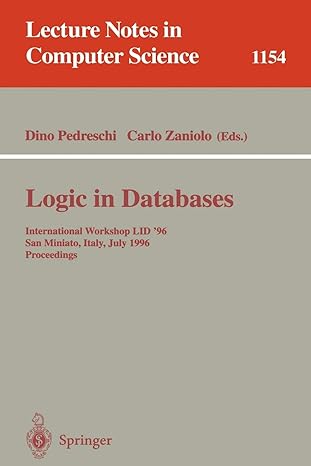Answered step by step
Verified Expert Solution
Question
1 Approved Answer
Consider the Scheme conditional with general form (for expressions e1, e2, e3): (if e1 e2 e3) Why is it clear that if is not a
Consider the Scheme conditional with general form (for expressions e1, e2, e3):
(if e1 e2 e3)
Why is it clear that if is not a function like + or string-append?
Question options:
| Because functions take one argument, and the conditional seems to take three arguments. | |
| Because the conditional in Scheme is a statement. | |
| Because the conditional expression must not evaluate all of its arguments unconditionally, but a function does evaluate all of its arguments unconditionally. | |
| Because we have not defined the conditional expression using (define (if x y z) ...). |
Step by Step Solution
There are 3 Steps involved in it
Step: 1

Get Instant Access to Expert-Tailored Solutions
See step-by-step solutions with expert insights and AI powered tools for academic success
Step: 2

Step: 3

Ace Your Homework with AI
Get the answers you need in no time with our AI-driven, step-by-step assistance
Get Started


